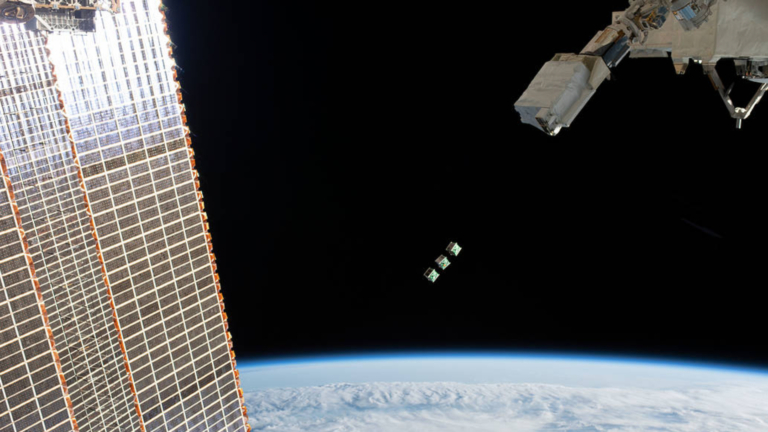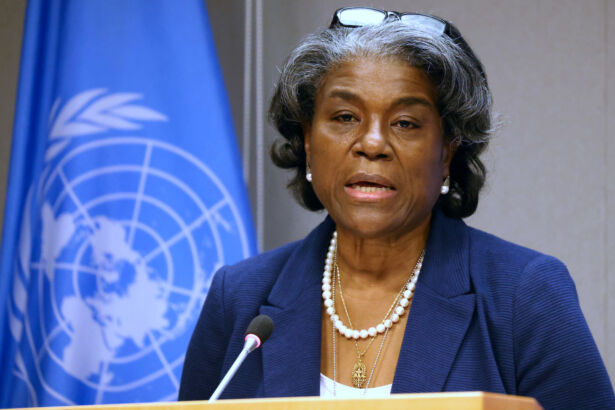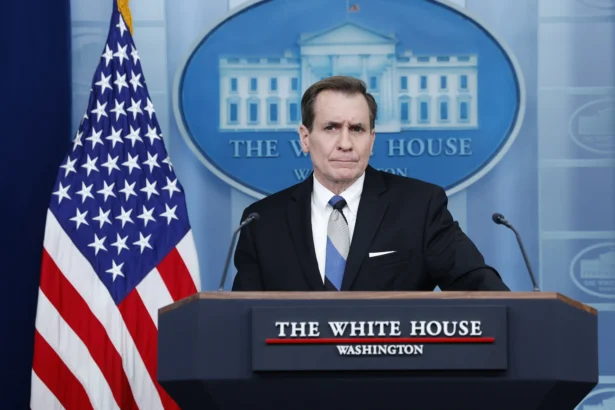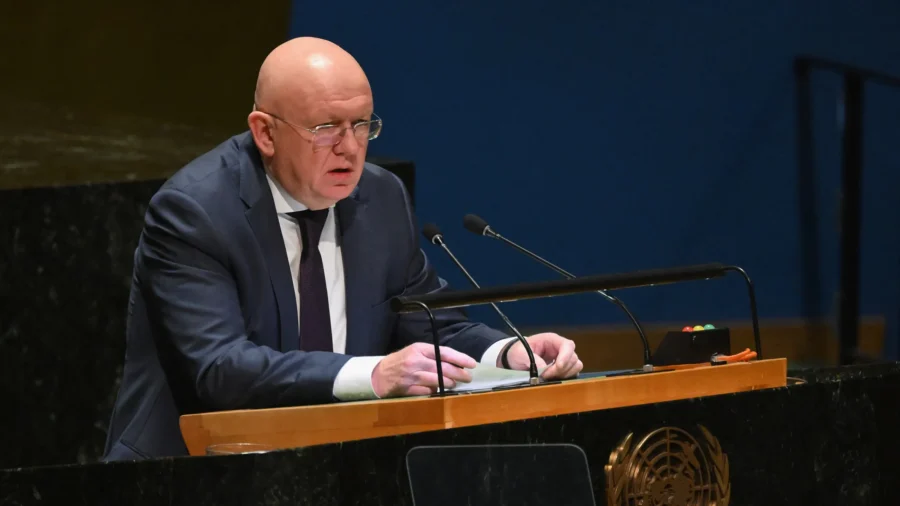Russia on Wednesday vetoed a United Nations Security Council resolution to prevent the development and deployment of nuclear weapons in space amid U.S. claims that Russia is developing a potentially nuclear anti-satellite weapons program.
The resolution reaffirms certain provisions in the 1967 Outer Space Treaty prohibiting the placement of nuclear weapons or other weapons of mass destruction in space and further calls on countries to abstain from developing such weapons.
Sponsored by the United States and Japan, the resolution was approved by 13 of the 15 members of the Security Council, with Russia vetoing the proposal and China abstaining from voting.
Russian Ambassador to the U.N. Vassily Nebenzia dismissed the proposal as a “dirty spectacle” and a politicized “cynical ploy.”
“Washington is clumsily trying to [shake] criticism, shifting blame,” he said after the council defeated Russo-Chinese efforts to amend the resolution prohibiting all kinds of space weapons.

Chinese Ambassador to the U.N. Zhang Jun shared similar concerns.
“The draft resolution that was just voted on is incomplete and unbalanced,” he said. “If the U.S. and Japan were truly committed to advance the council’s constructive deliberations on outer space security, then they should focus squarely on the risks of outer space being weaponized and the potential arms race.”
China and Russia have for years been striving to ban weapons of any kind in space, but their proposals have been rejected by the United States and many other Western nations because it would be hard to verify.
“We are incredibly disappointed by the result of today’s vote. But we remain undeterred,” U.S. Ambassador Robert Wood said in a press conference after the vote. “We will continue to show up to the negotiating table in good faith, and encourage bilateral arms control discussions with Russia and China, right now, without preconditions.”
U.S. Ambassador to the U.N. Linda Thomas-Greenfield said the veto only gives the impression that Moscow is “hiding” something. “Why, if you are following the rules, would you not support a resolution that reaffirms them?” she said, condemning Beijing for siding with Russia.

Nukes in Space?
The resolution was proposed after the White House in February confirmed that it had obtained intelligence that Russia was developing unspecified “anti-satellite capability.”
White House national security communications adviser John Kirby called the program a serious threat, he made sure to clarify that these weapons were still in development.
“It’s not an active capability that is yet deployed,” Mr. Kirby said.
“There is no immediate threat to anyone’s safety.”
Mr. Kirby refused to elaborate on whether these weapons would be nuclear, as rumored by some media outlets.
However, U.S. National Security Advisor Jake Sullivan now stated that the Russians were indeed aiming to put nuclear weapons in orbit.

“As we have noted previously, the United States assesses that Russia is developing a new satellite carrying a nuclear device,” he said in a White House statement in response to the Russian veto.
Mr. Sullivan reiterated Ms. Thomas-Greenfield’s argument that if there were no plans to deploy nuclear weapons in space, “Russia would not have vetoed this resolution,” adding that nuclear weapons would “threaten the vital communications, scientific, meteorological, agricultural, commercial, and national security services that any and all satellites provide to societies around the globe.”
Targeting Satellites or Earth?
When the news broke in February that Russia would be putting nuclear weapons in orbit as part of an anti-satellite program, defense analyst Todd Harrison argued that there are better ways to disable enemy satellites.
“Popping off a nuke in space creates a real mess that affects satellites indiscriminately,” he wrote on social media platform X. “We know this because the US detonated a 1.4 megaton nuke at 400 km altitude in 1962. It charged up the Van Allen radiation belts and destroyed [roughly one-third] of the satellites in [low earth orbit]. And that included the UK’s first satellite, Ariel 1.”
However, Mr. Harrison made sure to emphasize that “the threat Russia poses in space should not be underestimated.”
“Those in Congress that have doubts about our continued support for Ukraine should pay close attention. Russia is a direct threat to the United States in space as well as on Earth.”
Though Mr. Putin has denied seeking to put nuclear weapons in orbit, he has repeatedly threatened to use nuclear weapons on Earth if NATO’s involvement in the war in Ukraine continues to increase.

